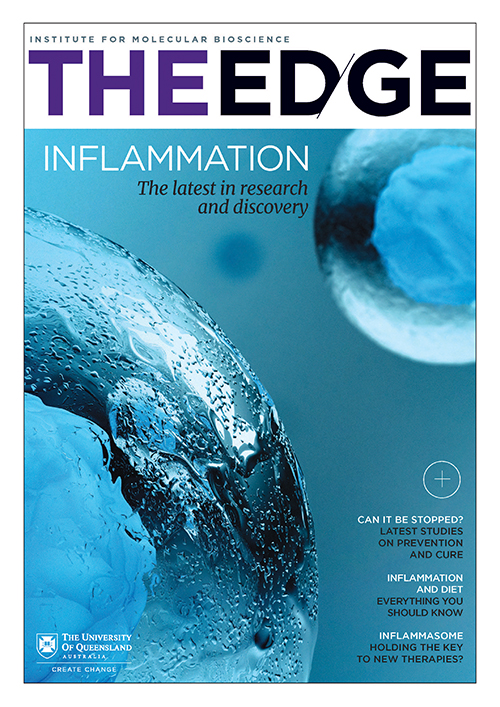A startup company developing treatments for inflammatory diseases based on a research partnership between The University of Queensland and Trinity College Dublin (TCD) has been acquired in a landmark deal – one of the largest in Australian and Irish biotech history.
Inflazome has been acquired by Swiss multinational pharmaceutical company Roche (SIX: RO, ROG; OTCQX: RHHBY) for an upfront cash payment of €380 million (circa $A600 million), plus additional payments based on the achievement of certain milestones. The acquisition gives Roche full rights to Inflazome's portfolio of drugs.
Now headquartered in Dublin, Inflazome was founded in 2016 following a research collaboration between UQ and TCD and is developing drugs to address clinical unmet needs in inflammatory diseases by targeting inflammasomes, which are understood to drive many chronic inflammatory conditions.
Two of the company's drug candidates are in clinical trials for the treatment of debilitating conditions such as cardiovascular disease, arthritis and neurodegenerative diseases such as Parkinson's, Alzheimer's and motor neurone disease.
The science behind Inflazome’s drug candidates is based on a research partnership between Professor Matt Cooper, Professor Kate Schroder, Dr Rebecca Coll and Professor Avril Robertson from IMB and Professor Luke O’Neill from Trinity College Dublin.
UQ Vice-Chancellor and President Professor Deborah Terry AO welcomed the acquisition and congratulated those involved.
“This is an outstanding outcome for the company, both universities, the researchers and the investors,” Professor Terry said.
“This deal reinforces the importance of research collaboration and shows what can be achieved through commercialisation.”
IMB Director Professor Ian Henderson emphasised the key role of research in helping to deliver solutions for global challenges, such as inflammatory diseases.
“It is a tremendous fillip to the Australian scientific community and reinforces the crucial role played by fundamental research in understanding underlying disease in order to develop much-needed treatments that improve the lives of many people in our communities dealing with chronic disease.”
“This acquisition coincides with the 20th anniversary of the IMB, affirming the purpose of the Institute and the vision that inspired UQ, the Queensland Government and our partners to establish what has become Australia’s leading research Institute.
“This is one of the largest Australian biotech deals and it reveals the role of IMB as a global leader in drug discovery, and, more broadly, the importance of research in driving innovation to support the recovery of our economy and to underpin our sovereign capability. "




